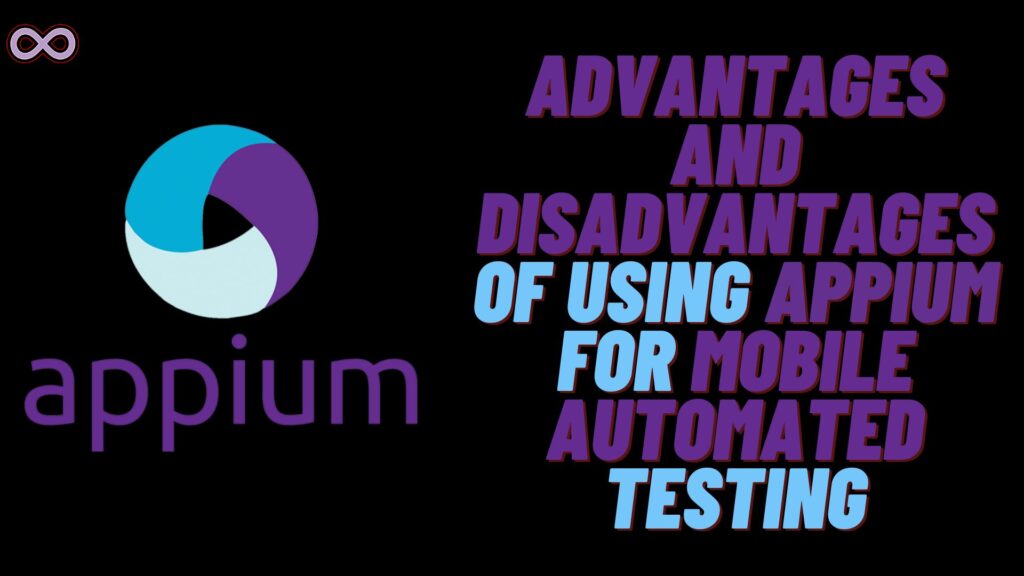Today’s testing experts research several techniques that may be utilized to thoroughly test a mobile application across a range of platforms and devices. More than that, they look for test automation frameworks that will enable them to efficiently assess a variety of mobile apps.
Testing native, hybrid, and mobile web applications is made easier with the help of Appium, a powerful framework for test automation. This functionality enables users to test mobile applications using real devices, emulators, and simulators. The associated article provides more information on how widely used Appium is as a mobile app testing tool for interested readers.
The process of designing an application must include testing it on mobile devices. The good quality of mobile applications might largely be ensured through automated testing. For performing automated testing on mobile applications, Appium is a valuable tool.
Table of Contents
What does “Appium Test Automation” actually mean?
On the iOS and Android platforms, users can test native and hybrid applications using the Appium platform for automated mobile testing. It is an excellent alternative to automate the testing of mobile applications because it communicates with programs and controls devices via the Selenium WebDriver API. Appium is a mobile app testing automation tool that uses the Selenium WebDriver API and runs on an open-source platform. It is simple to comprehend and implement, allowing you to develop tests against mobile applications. It employs the same structure and vocabulary as your web tests. Additionally, Appium is supported by popular mobile platforms like Android and iOS, so you can integrate it into your current continuous integration and delivery pipeline.
Why is Appium so popular?
There is no getting around the fact that the mobile industry is growing quite quickly. Organizations are recognizing the importance of mobile automated testing as they work to accelerate the delivery of software applications.
In addition to Appium, several other open-source solutions can be used to automate mobile testing. However, an additional agent that compiles most of the application code is necessary for most tools to communicate with native mobile applications. Unlike previous systems, Appium enables communication across different apps without requiring your program to include additional agents.
Some of the main characteristics that make Appium apart from other mobile test automation technologies are as follows:
- Like Selenium Server, Appium functions like a server and completes its work in the background.
- It has a UI Automator that can be utilized to investigate mobile applications to gather comprehensive information logs and reporting structures.
- Regardless of the programming language or framework used to create it, it can automate any mobile application.
- Appium gives you unrestricted access to the databases and back-end APIs within your test scripts.
- Regression testing for mobile apps is made easier by it.
- Appium does not need to be installed on the tested devices to test mobile applications.
- It accomplishes this by utilizing the Selenium WebDriver JSON Protocol to interact with native iOS and Android mobile applications.
- Using Appium, you can test your apps on cloud-based real devices, emulators, and simulators.
- You may run parallel tests on the Appium automation scripts you’ve created using Xcode, UIAutomator, and UIAutomation.
The expert can further automate the mobile apps without requiring any changes to the app’s code or the addition of additional components. They can even create test scripts in a wide range of programming languages and use a tool that records and plays back their work. In a similar line, Appium, an open-source test automation platform, helps testers significantly lower the costs related to testing mobile applications. However, QA testers must know that Appium has advantages and disadvantages, just like other test automation tools and frameworks. So, before implementing Appium, they must have a clear understanding of both its advantages and disadvantages.
Appium Mobile Testing using LambdaTest
Undoubtedly Appium is one of the best frameworks to be used in the test automation plan. Everyone knows running, scaling, and setting up in-house device labs can be expensive. As the best alternative, you can use a real device cloud platform like LambdaTest for Appium testing. With the help of the LambdaTest platform, you no longer need an in-house device lab and perform Appium testing on real device clouds across the world.
Once you sign up on our LambdaTest platform, they will provide the first 100 minutes of Appium testing completely free. Also, you can explore more benefits through manual testing, Visual UI testing, etc.
LambdaTest is a digital experience testing platform to perform manual and automation testing for mobile and web apps on over 3000 browsers, real devices and operating systems. More than 500 enterprises and a million users from 130+ countries are already using LambdaTest to fulfill their testing requirements.
Advantages of using Appium for mobile automated testing:
Here is the list of advantages of using Appium for mobile automated testing:
- Best known for automating various types of mobiles applications
Developers are frequently forced to choose test automation frameworks based on the type of mobile app being created. Appium serves as a framework for cross-platform test automation, making testing mobile and hybrid web apps simpler. At the same time, it enables testers to automate native mobile applications on platforms like iOS, Android, and Windows Mobile utilizing the WebDriver protocol. As a result, it is now simpler for testers to evaluate various mobile applications using a single tool.
- No app code recompilation:
Several test automation tools are available, and most need testers to modify the application’s code. Several test automation frameworks require testing experts to recompile the application code in line with the mobile platforms that are being targeted. Contrarily, Appium enables testers to examine both native and cross-platform mobile applications without frequently changing the code or recompiling it.
- Allows testers to use simulators, real devices, and emulators
In many instances, testers research techniques for assessing mobile apps using real devices to obtain a more true image of the usability and user experience of the apps. However, the testing of mobile apps cannot be accelerated without the help of emulators and simulators. Because of this, most modern testers employ test automation frameworks that work with emulators and simulators as well as real devices. Appium enables developers to give reliable test results while reducing the time spent testing by supporting real devices, simulators, and emulators.
- Allow the testers to automate the apps without adding any extra components.
With the help of Appium, experts can automate a range of mobile applications. By keeping all of the complexity on the Appium server, they can even simplify mobile app automation. They don’t need to invest any extra time or effort to run the same tests on various mobile devices. Additionally, Appium enables users to automate the testing of mobile apps without installing any special components.
- Offers a playback and recording tool:
Like any other widely used test automation framework, Appium offers a powerful tool for recording and replaying test scenarios. Testers can work with Appium more quickly because of Inspector’s functionality for recording and replaying test data. Even native programs can record their behavior by Appium Inspector by looking at their DOM. Testers can also use the record and playback tool to create test scripts in various computer languages. Appium Inspector’s availability is still constrained by the inability to run on Windows.
- Permits test performance without server machines
Despite being a platform for test automation, Appium was created as an HTTP server. Even during development, it uses NodeJS, a portable runtime environment for several platforms. Thanks to NodeJS, programmers can create server-side code in JavaScript. Even without using any server machine, testing specialists can conduct tests effectively using Appium. By linking the test machines to a test server, Appium also establishes a two-tier architecture. The test automation framework runs automatically on the test server.
- Supports a variety of languages that are compatible with web drivers
The Selenium WebDriver API is one of the test frameworks that can be seamlessly combined by the professionals in charge of testing with Appium. The Selenium WebDriver API allows testers to create test scripts in various programming languages. Distributing the same test scripts across many test environments is also beneficial for industry specialists in testing. Appium also supports several languages that are compatible with WebDriver. Java, C#, JavaScript, PHP, Ruby, and Objective-C are some of these languages. As a result, a tester can create test scripts in any programming language.
The disadvantage of Appium is that it does not support older Android versions.
Disadvantages of using Appium for mobile automated testing:
Here is the list of disadvantages of using Appium for mobile automated testing
- Appium does not currently support older Android versions.
It only works with Android versions 4.2 and later. Similarly to that, it does not support earlier Android operating system APIs. Developers must combine Appium and Selenium to test APIs with a version lower than 16. A sizable portion of hardware still runs Android 4.1, also called Lollipop. Because of this, testing mobile apps made to work with various Android versions can be difficult for developers.
- Does not permit script executive on many iOS simulators
Developers can use simulators thanks to Appium, hastening the testing of iOS applications. The simulators make it considerably easier for testers to mimic the internal operations of the underlying iOS devices. However, when using this tool, users cannot run several test scripts simultaneously on many simulators. Therefore, it is important for the developers to separately run the test scripts to deliver more reliable test results. This disadvantage also significantly lengthens the time needed to test iOS applications.
- Lacks capability to locate and recognize images
To give more accurate input, many testers of mobile games and apps these days choose to employ tools that include image recognition capabilities. Unlike other popular mobile app testing tools, Appium cannot automatically locate photographs. Additionally, testers must work with screen coordinates to allow Appium to correctly detect and recognize photos.
- No common gestures
Appium does not currently offer native support for processing Android alerts. The users are, therefore, unable to review the alert processing using native APIs. They need to manage notifications differently to get accurate test results. In a similar vein, double-clicking is one of the gestures that are often used in Java-client libraries but are not currently supported by Appium. Testing experts must invest more time and effort to put these gestures through their paces.
Appium’s features give developers more flexibility in selecting native, hybrid, and mobile web apps for their projects. Another solution that helps developers save the overall cost of mobile app testing is Appium, an open-source test automation platform. However, Appium offers advantages and disadvantages like any other tool for testing mobile applications. Testing experts should always consider the advantages and disadvantages of Appium while comparing similar test automation frameworks.




